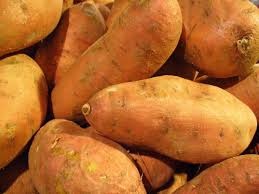The Church For The Poor & Catholic Social Justice Teaching
Think BIG!
Pope Francis chose to name himself after Saint Francis of Assisi because because he "is the man of poverty, the man of peace, the man who loves and protects creation."
"How I would like a church that is poor and for the poor," he told journalists. And this has been a recurring theme of his Papacy, encouraging all of us to engage more deeply in loving and caring for our brothers and sisters around the world. http://ncronline.org/blogs/francis-chronicles/pope-francis-i-would-love-church-poor
In his message to the United Nations’ Food and Agriculture Organization in June 2015, Pope Francis focused on three main points: 1.) reducing the waste of foodstuffs; 2.) educating people in how to practice wholesome nutrition; 3.) fostering an attitude of genuine and effective solidarity in order to promote and achieve real food security for all and for everyone.
“Food security must be achieved,” said Pope Francis.
“The Church with its institutions and its initiatives,” concluded Pope Francis, “walks with you, knowing that the earth's resources are limited and their sustainable use is an urgent need for agricultural development and food security. For this reason, the Church is committed to promoting the change of attitude necessary for the good of future generations.”
Pope Francis has been an outspoken advocate for the poor in the fight against hunger, saying it is a "God-given right of everyone to have access to adequate food" and urging everyone to be more conscious of their "food choices," including waste, to end the "global scandal" of hunger.
The Pope also wrote global leaders at the 2015 G-20 summit, citing malnutrition as the first of the problems they should seek to solve.
In his Encyclical, Laudato Si‘: On Care For Our Common Home, Pope Francis expressed concernc for addressing both poverty and the environment:
"We are faced not with two separate crises, one environmental and the other social, but rather with one complex crisis which is both social and environmental. Strategies for a solution demand an integrated approach to combating poverty, restoring dignity to the excluded, and at the same time protecting nature." (no. 139)
"In the present condition of global society, where injustices abound and growing numbers of people are deprived of basic human rights and considered expendable, the principle of the common good immediately becomes, logically and inevitably, a summons to solidarity and a preferential option for the poorest of our brothers and sisters." (no. 158)
"A global consensus is essential for confronting the deeper problems, which cannot be resolved by unilateral actions on the part of individual countries. Such a consensus could lead, for example, to planning a sustainable and diversified agriculture..." (no. 164)
And he also proposed several reasons for hope, including: "We must not think that these efforts are not going to change the world." (no. 212)
The St. Matthew-GIFT sweet potato farming project addresses environmental stewardship through advancing sustainable practices, malnutrition through the nutritional value of the sweet potato, and poverty through the ability of household farmers to earn income.
As we consider the sometimes difficult aspects of engaging in global solidarity, we would do well to consider the words Pope Francis once expressed challenging to align with God's plan to make a difference:
"We Christians were not chosen by the Lord for small things; push onwards toward the highest principles. Stake your lives on noble ideals!"
(Homily at Holy Mass and the Conferral of the Sacrament of Confirmation, 28 April 2013).
Jesus, Himself, encoruaged us in a similar way to use our talents and faith and His Godly provisions to the fullest:
We Should Have Faith Of An Olympian:
Similarly, one of the reasons St. Matthew earnestly considered pursuing a global smart farming initiative -- and has chosen to encourage others to do so as well -- was a sermon the church heard from Father Bill Olesik encouraging us to live our faith just as Olympians live out their quest -- with great effort and fervency to win the Gold.
May we act in solidarity and sustainability as a Church for the Poor and with the commitment of an Olympian.
Caritas In Veritate Encourages Innovation In Agriculture:
"Life in many poor countries is still extremely insecure as a consequence of food shortages, and the situation could become worse: hunger still reaps enormous numbers of victims among those who, like Lazarus, are not permitted to take their place at the rich man's table, contrary to the hopes expressed by Paul VI. Feed the hungry (cf. Mt 25: 35, 37, 42) is an ethical imperative for the universal Church, as she responds to the teachings of her Founder, the Lord Jesus, concerning solidarity and the sharing of goods.
Moreover, the elimination of world hunger has also, in the global era, become a requirement for safeguarding the peace and stability of the planet...The problem of food insecurity needs to be addressed within a long-term perspective, eliminating the structural causes that give rise to it and promoting the agricultural development of poorer countries... in the development and dissemination of agricultural technology that can make the best use of the human, natural and socio-economic resources that are more readily available at the local level, while guaranteeing their sustainability over the long term as well. All this needs to be accomplished with the involvement of local communities in choices and decisions that affect the use of agricultural land.
In this perspective, it could be useful to consider the new possibilities that are opening up through proper use of traditional as well as innovative farming techniques..."
